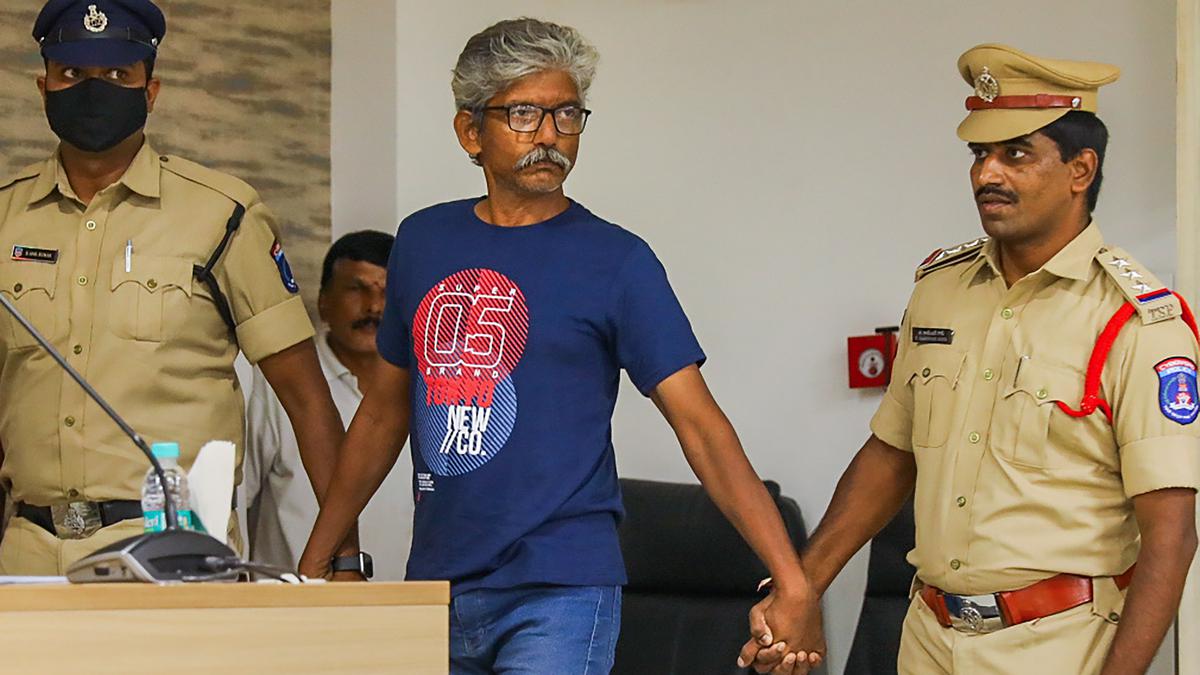
Wanted Maoist Sanjoy Deepak Rao apprehended by Cyberabad police
The Hindu
Rao arrived in Hyderabad around four days ago and was proceeding to Maad, Chhattisgarh when the Cyberabad police intercepted him on Friday morning.
The officials from the Telangana Intelligence Department of Cyberabad Police apprehended a most-wanted Maoist, Sanjoy Deepak Rao, the Central Committee Member of CPI (Maoist), from near Malaysian Township in Kukatpally on Friday morning. A revolver with six live rounds, a laptop and other articles along ₹47,250 in cash were recovered from his possession.
The Telangana state’s Intelligence Bureau has been tracking this high profile target for a long time, said the DGP of the state, Anjani Kumar.
“A native of Shivagandha Nagar of Ambernath East district of Thane, Maharashtra, Rao got attracted towards the Left Wing Extremist ideology having been influenced by his father, who was a strong Communist trade union leader,” said the official.
While he was studying B. Tech at Jammu and Kashmir in 1983, he and some of his friends supported the separatist movement of Kashmir people. After returning from there, he initially worked in Communist Party of India (Marxist–Leninist) Liberation (CPI ML) Central Reorganisation Committee (CRC) group and CPI ML Rawoof group.
In 1999, he along with Konath Muralidharan alias Ajith, Ex-CCM, formed CPI ML Naxalbari Group. The subject was made in-charge of Maharashtra State CPI ML Naxalbari group and Muralidharan was all India Secretary.
Following some health issues, he left for Western Ghats for urban areas to get treatment in January and recovered in March. “He has been planning to go to Maad, Chhattisgarh to attend a meeting and to meet Baswaraj, General Secretary, CPI Maoist, Ganapathi, CCM, etc., leaders. Ranjith Shankaran, Professor of Mahindra Tech University who resides in Malaysian township in Kukatpally, and B. Ajith Kumar, Film Editor from Madhapur, are his friends from college,” said the police. He also used to visit his friends’ houses in Mumbai, Pune and Hyderabad by taking utmost precautions while moving on party work.
Rao arrived in Hyderabad around four days ago and was proceeding to Maad, Chhattisgarh to attend a meeting when, based on specific inputs given by the Intelligence department, the Cyberabad police intercepted him on Friday morning.













